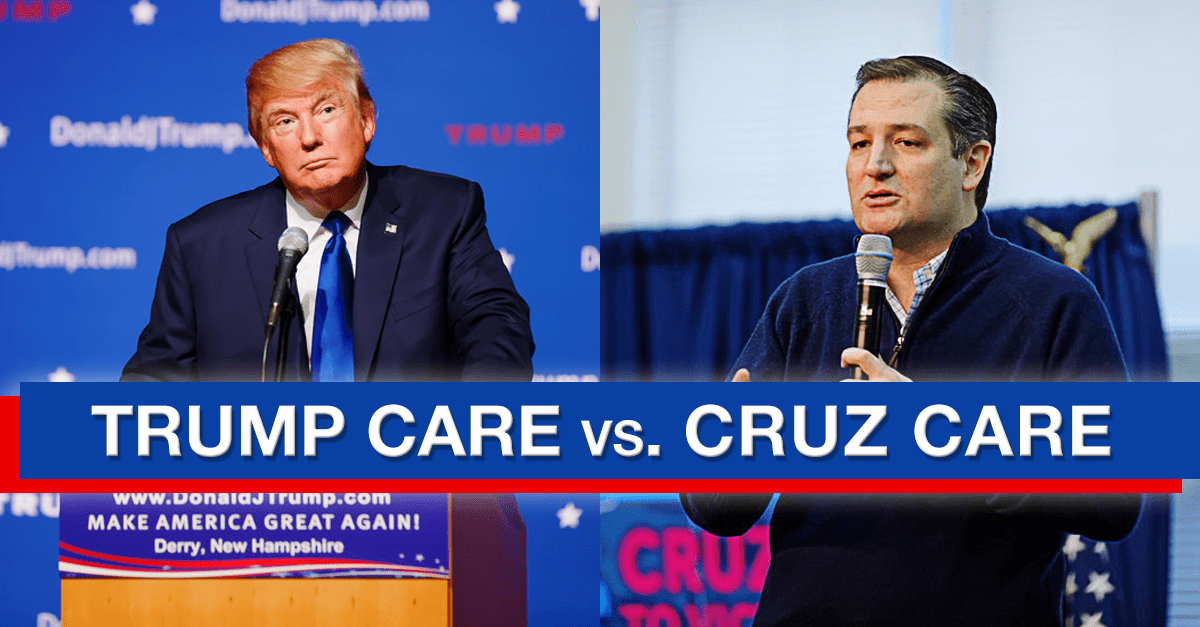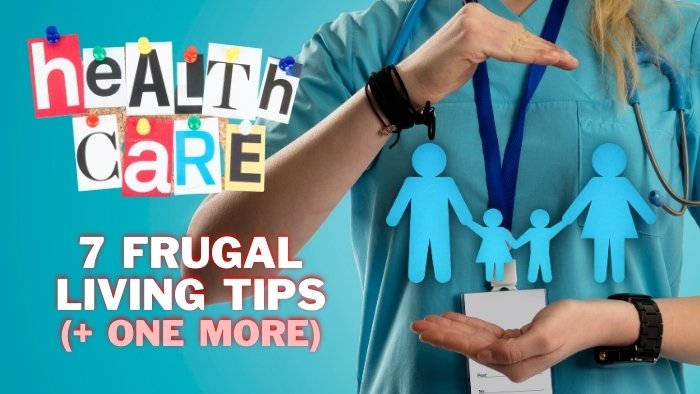
President Obama’s Affordable Care Act has been one of the most divisive laws in recent memory. As Super Tuesday revealed, Trump and Cruz have the highest probability of securing the Republican nomination. For the sake of brevity, let’s leave out Rubio and democratic candidates and focus on how Cruz and Trump plan to tackle Obamacare.
Both Donald Trump and Ted Cruz have widely proclaimed their disdain for the ACA. Cruz, the junior senator from Texas, constantly promises to “repeal every word” of the act, while the billionaire businessman has called it “a catastrophe that must be repealed and replaced.”
Repealing the ACA Won’t Be Popular
During the 2016 open enrollment period, 12.7 million Americans signed up for receiving health insurance coverage. Although Republicans are quick to point out that many were forced into a decision by increasing penalties, not all Americans feel the same. A poll last year indicated only a 35% agreement of repealing the ACA entirely. And this is likely to be lower if re-polled by the time a republican president could be elected and pass legislation.
Many of those now insured, have received coverage for the first time. One thing is clear, it would be an administration public relations nightmare if the ACA were completely removed without a valid replacement. Millions of Americans would cancel or lose health insurance.
Repeal Isn’t Immediate and Could Be Costly
One issue at stake, is when the full law could be repealed. The ACA took years to go into effect and parts of the law have only recently gone live. Even if Trump or Cruz was able to pass legislation that banned the Affordable Care Act, it wouldn’t happen overnight.
Several sources also indicate that repealing the ACA would cost more money and add to a federal deficit. One site that claims to be independent and non-partisan, Obamacarefacts.com states that the deficit would increase by 137 billion if ACA was canceled.
Drew Altman, the president of the Kaiser Family Foundation, told CNBC that he thinks there’s not much chance of repealing the ACA. However, experts predict that a new president might try to effect change through regulations and granting more power to individual states, rather than legislation.
Even Trump in his recent health care outline, acknowledges that repealing Obamacare is the responsibility of congress:
But none of these positive reforms can be accomplished without Obamacare repeal. On day one of the Trump Administration, we will ask Congress to immediately deliver a full repeal of Obamacare.
Will a republican congress repeal Obamacare with a republican president? It’s still a big unknown. But for now, let’s analyze Cruz’s 3-point Obamacare alternative with Trump’s 7-point health plan.
Insurance across State Lines
Both Trump and Cruz agree on letting people buy health insurance across state lines. The idea is to encourage more competition. From Trump’s plan “modify existing law that inhibits the sale of health insurance across state lines. As long as the plan purchased complies with state requirements, any vendor ought to be able to offer insurance in any state. By allowing full competition in this market, insurance costs will go down and consumer satisfaction will go up.”
The GOP has been kicking this idea around for more than a decade, and all major Republicans seem to support it. Proponents point out that states differ greatly in their coverage requirements. If one state requires insurance policies to cover chiropractic care, and that’s not something you want, could you get cheaper insurance from another state without that stipulation? Maybe. Then again, since insurance is built by developing relationships and partnerships, an insurer in another state might have only a skeleton crew of health providers in your area. Rates also vary by a state’s demographics. If enough people from states with poorer health – such as Mississippi or Louisiana – started buying insurance from healthier states like Utah and Colorado, rates could shift.
Health Insurance Savings Accounts
Both Cruz and Trump have come out in favor of Health Insurance Savings Accounts (HSAs). Individuals with HSAs can currently contribute $3,350 solo and $6,750 in a family, earning tax-free interest while saving up for health emergencies. HSA’s can also benefit small business owners and entrepreneurs.
Trump’s recent outline isn’t specific on the reforms he would create for HSA’s, only that he supports it. HSA’s are currently compatible with ACA, but only for high deductible plans.
Perhaps Trump or Cruz would require all Americans to have an HSA with a high deductible plan.
When a medical service is needed below the deductible amount, such as a mole removed, an acupuncture appointment, a new pair of glasses or a prescription, the savings stored in an HAS would be used to pay. The idea is that customers must shop around for common health services like they would for other consumer goods. Now instead of blindly following doctor’s orders for every test and medication, customers limit medical purchases below their deductible and a deductible is reached for serious emergencies only.
Another possibility is to allow HSA’s to be used with lower deducible plans, this would allow more competition and increase adoption.
Preexisting Conditions and Risk Pools
The requirement in the ACA called “guaranteed issue” says that all (health plans private and government subsidized) must enroll people regardless of their age, health status, gender or other factors. This, coupled with the stipulation that all marketplace plans must cover treatment for patients’ pre-existing conditions, steeply drives up the cost of healthcare.
Trump leaves out pre-existing coverage in his 7-point plan, although in the past, he and Cruz have argued that instead of putting everybody into the same pool and requiring insurers to charge all members the same rates regardless of their afflictions, the sickest people could instead join high-risk pools. This would keep these highest-cost individuals from driving up the costs for everybody else, but could it work?
While it’s likely to help the healthy receive more affordable insurance, it can easily have the opposite impact for the sick, driving up premium costs for those who truly need it.
Health Insurance Mandate
A critical component to the Affordable Care Act is that health insurance is required, without coverage there are tax penalties that have increased each year since its enactment. Although Trump was originally a supporter of the mandate, he has switched to the same position as Cruz, that health insurance should be optional.
The problem with removing a mandate, is healthy young people are far less likely to get coverage. Worse, Cruz proposes to decouple insurance from the workplace, a move that would allow many employees the choice of paying for health insurance.
Point 3 of Trump’s plan, argues that anyone can deduct health insurance premiums from taxation, not just employer sponsored insurance. Yet it’s very unlikely for a tax incentive to have the same effect as the current tax penalty. The tax deduction is more likely to add to the Federal deficit than to encourage Americans to have health insurance.
Focus on Prevention
In line with Republicans’ pull-yourself-up-by-your-bootstraps focus on responsibility, Cruz or Trump, might also emphasize preventive care. As the GOP website proclaims, “When approximately  80 percent of healthcare costs are related to lifestyle — smoking, obesity, substance abuse — far greater emphasis has to be put upon personal responsibility for health maintenance.”
80 percent of healthcare costs are related to lifestyle — smoking, obesity, substance abuse — far greater emphasis has to be put upon personal responsibility for health maintenance.”
Many people point out that health insurers offer no incentive to stay healthy. Perhaps people could get a discount for maintaining a solid diet and exercise regimen, decreasing body fat percentage, or testing negative for an illness with which they were previously diagnosed. There would be a loss of privacy, but it may be sacrificed for more incentivized policies.
Medicaid
The Republican Party is officially committed to somehow salvaging Medicaid and Medicare, though both programs are growing unmanageable. The number of people enrolled in Medicare has more than doubled since 1970, and Medicaid has nearly doubled.
But Cruz is less supportive of the health program. He has described health outcomes as “markedly worse when people get on Medicaid.” He’s also asserted that “People’s life expectancy goes down on Medicaid.” While these claims are unsubstantiated, Cruz is committed to his viewpoint.
Trump stands out from the Republican field here as being much more Medicaid-friendly. He also supports Medicare and Social Security. “It’s not fair to the people that have been paying in for years and now all of the sudden they want to be cut,” he said. In his recent health care outline, Trump argues to
Robert Laszewski, a healthcare expert who operates Virginia’s Health Policy and Strategy Associates, suspects Republicans might “solve” the Medicaid problem by delegating more control to individual states, which could add stipulations such as people must be employed to reap benefits.
Start Preparing
 It’s still too soon to know whether Mr. Trump, Mr. Cruz, or somebody else will win the Republican nomination. And, whichever one does, whether he or she will prevail for the presidency. But ordinary citizens might want to start preparing now for any eventualities. Nicotine patch? Check. Blender for making green smoothies? Affirmative. Running shoes? Yep. Now maybe we’ll survive the next presidency, alterations to the Affordable Care Act, and our own dubious health decisions.
It’s still too soon to know whether Mr. Trump, Mr. Cruz, or somebody else will win the Republican nomination. And, whichever one does, whether he or she will prevail for the presidency. But ordinary citizens might want to start preparing now for any eventualities. Nicotine patch? Check. Blender for making green smoothies? Affirmative. Running shoes? Yep. Now maybe we’ll survive the next presidency, alterations to the Affordable Care Act, and our own dubious health decisions.






